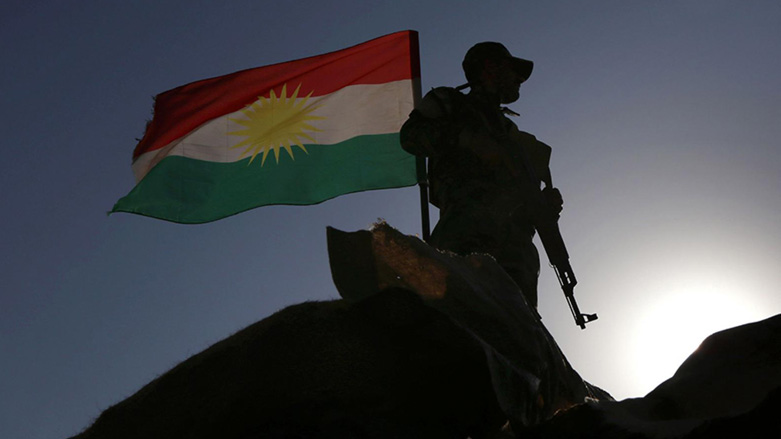Coalition Spox: New advisory center in Erbil for Peshmerga
“The International Coalition will continue to support the Peshmerga Forces and provide advice and assist in this phase.”

WASHINGTON DC (Kurdistan 24) – “We’re in the process of setting up an advisory center in Erbil, where Coalition advisors directly engage with Peshmerga forces,” Col. Wayne Marotto, the new Spokesman for the US-led Coalition against ISIS, explained to Kurdistan 24.
Marotto, who replaced Col. Myles Caggins earlier this month, reaffirmed, in an interview last week, the US-led Coalition’s continued commitment to defeating ISIS.
“The Syrian Democratic Forces, the Peshmerga Forces, and the Iraqi Security Forces,” Marotto said, “the Coalition and the world appreciate the partnered forces’ outstanding capabilities in the fight against Da’esh.”
“The International Coalition will continue to support the Peshmerga Forces and provide advice and assist in this phase,” he continued. “The Special Operations Unit within the Coalition continues to advise the anti-terrorism forces in the Kurdistan Region.”

“We also have for these forces, this conditions-based divestment of military equipment and supplies for the Peshmerga to ensure the enduring defeat of Da’esh,” he stated, before noting that the US ambassador to Iraq, Matthew Tueller, in an extended visit to Erbil, had just “announced $250 million worth of equipment to the Kurdistan Region Peshmerga Ministry—equipment such as Humvees, radios, and maintenance items.”
Read More: US pledges nearly $250 million in military equipment to Kurdistan Region
Marotto also stressed that the attacks being launched by what he called “outlawed groups”—i.e. pro-Iranian militias—as well as Da’esh are not really against Coalition troops, although those carrying out the attacks regularly make that claim.
“They’re attacking the Iraqi Security Forces,” Marotto said. “They’re attacking the Iraqi Security Forces’ civilian logistic convoys, with Iraqi civilians driving those convoys.”
“They’re killing Iraqis. They’re sending indirect fire against Iraqi sites,” he continued. “The Coalition doesn’t have any Coalition sites in Iraq. They’re all Iraqi sites, and these outlaw groups are attacking Iraqis.”
“The Coalition is going to do what we need to do to defend ourselves. But, again, the outlaws are saying that they’re attacking us,” Marotto stated. “But despite what they’re saying, they’re not attacking us.”
Moreover, the attacks, such that they are, have not been all that serious.
“They’re only attacking about five percent of all the convoys in Iraq. So it’s a small percentage,” Marotto said. “Some low-level attacks against Iraqi sites are up, but it’s just low-level attacks” and “compared to historic highs that we’ve had in Iraq, this is very low.”
Marotto draws on significant experience in Iraq, where, he served during the “surge” of Operation Iraqi Freedom (OIF.) When that war began, in March 2003, the Bush administration expected a quick victory, and first believed that it had, indeed, achieved such a victory.
But even as that failed to materialize, Secretary of Defense Donald Rumsfeld refused to acknowledge that the US faced a real, full-blown counter-insurgency. Rather, he referred to the insurgents as “dead-enders,” as if they were not a serious problem.
Following the Congressional elections in November 2006, Bush replaced Rumsfeld with Robert Gates, who had headed the CIA under Bush’s father, George H. W. Bush.
The number of US troops in Iraq was increased, and the US began to pursue vigorously a counter-insurgency strategy under Gen. David Petraeus.
Four years later, the then-enemy, al Qaida in Iraq, appeared largely defeated, and Bush’s successor, President Barack Obama, pulled US troops out of Iraq. Yet just three years later, the same terrorists were back, under a new name: ISIS, prompting a second US intervention.
From that bitter experience, US officials, broadly speaking, have come to recognize that they can’t simply walk away from Iraq.
In that spirit, the interview ended with Marotto’s affirmation: “Coalition Forces, along with the Peshmerga Forces and the Iraqi Security Forces, will continue to cooperate and ensure that all Da’esh remnants are defeated.”
Editing by Karzan Sulaivany
